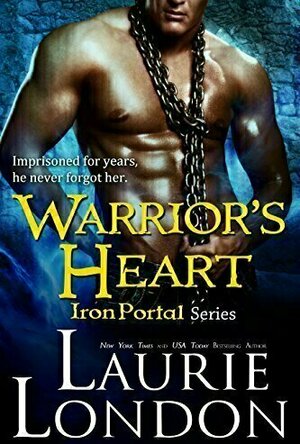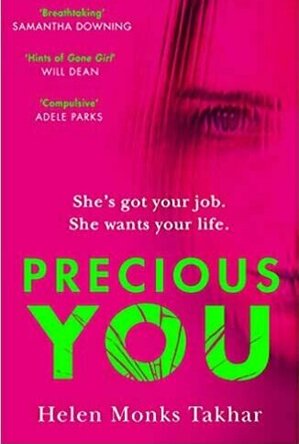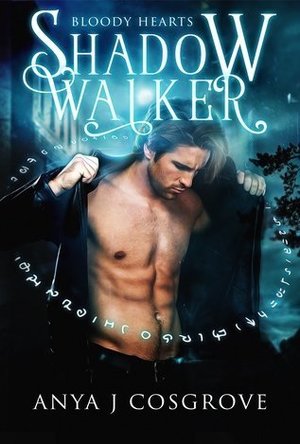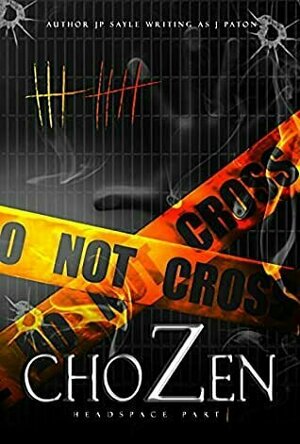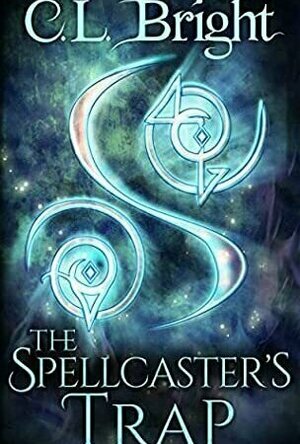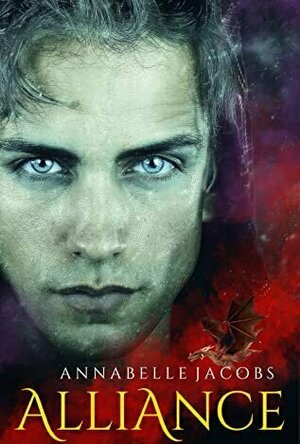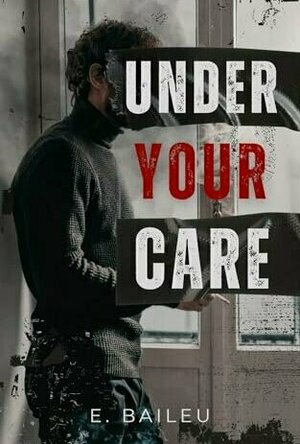Search
Search results

The High King’s Tomb: Green Rider #3
Book
More than a thousand years ago, the armies of the Arcosian Empire, led by sorcerer Mornhavon the...
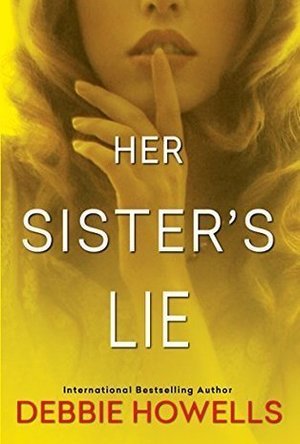
Her Sister's Lie
Book
In this riveting psychological thriller, the international bestselling author of The Bones of You...
mystery thriller
Merissa (13690 KP) rated Warrior's Heart (Iron Portal, #3) in Books
Apr 14, 2023
I am loving the Iron Portal series and Warrior's Heart is no exception. Vince was taken away abruptly by the army ten years ago, and presumed dead by his family for a long time. Zara was the one left behind that no one knew about but with a present of her own. Both these people have to fight to survive and have their own demons to bear, Vincent's just being more physical. What the 'Doctor' did to him was sickening, and his reasoning for it, although it sort of made sense in a twisted sort of way, absolutely did not excuse what he was doing to the Talents. Zara honed her Talent and used it to 'rescue' items that had been stolen from Cascadia. When she learns that Vincent is alive and can be found, she uses her Talent to rescue him too.
This book was harder to read as Vincent tries to deal with his past and his PTSD, while I was full of admiration for Zara and how she handled things. I fall more in love with Cascadia every time we visit and I loved the family reunion and yes, I shed a tear or two.
This is once again incredibly well-written, packed full of emotion and a delight to read. I would recommend this book and this series without any hesitation at all. Love it.
* A copy of this book was provided to me with no requirements for a review. I voluntarily read this book; the comments here are my honest opinion. *
Merissa
Archaeolibrarian - I Dig Good Books!
Jul 02, 2015
This book was harder to read as Vincent tries to deal with his past and his PTSD, while I was full of admiration for Zara and how she handled things. I fall more in love with Cascadia every time we visit and I loved the family reunion and yes, I shed a tear or two.
This is once again incredibly well-written, packed full of emotion and a delight to read. I would recommend this book and this series without any hesitation at all. Love it.
* A copy of this book was provided to me with no requirements for a review. I voluntarily read this book; the comments here are my honest opinion. *
Merissa
Archaeolibrarian - I Dig Good Books!
Jul 02, 2015
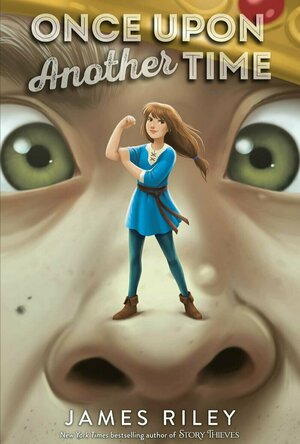
Once Upon Another Time
Book
Storybook characters collide in this first book in a new trilogy of twisted fairy tales from New...
Lyndsey Gollogly (2893 KP) rated Precious You in Books
Oct 30, 2023
161 of 235
Book
Precious You
By Helen Monks Takhar
⭐️⭐️⭐️⭐️
Trusting you was my first mistake. To Katherine, twenty-four-year-old Lily Lunt is a typical “snowflake.” It seems like the privileged, politically correct millennial will do whatever she can to make it big as a writer, including leveraging her family’s connections. To Lily, Katherine Ross, a career woman in her early forties, is a holdover from another era: clueless, old-fashioned, and perfectly happy to build her success on the backs of her unpaid interns.
When Lily is hired as the new intern at the magazine where Katherine is editor in chief, her arrival threatens the very foundation of the self-serving little world that Katherine has built. She finds herself obsessively drawn to Lily, who seems to be a cruel reminder of the beauty and potential she once had—things Lily uses against Katherine as she slowly begins to undermine her, sabotaging her work and turning the magazine’s new publisher against her. Is Katherine being paranoid? Or is Lily seeking to systematically destroy her life? As Katherine tries to fight back, a toxic generational divide turns explosive and long-buried secrets are exposed—with deadly consequences for both. . . .
This was such an intense read. I had so many things going round my head at the end I don’t know how to put them into words without having spoilers. It’s was a tragic end all down to one girl’s psychotic thoughts maybe that’s the wrong way to put it but I’m lost for words I think. It’s a slow start but soon it all becomes clear. Little bit of a twisted ending!
Book
Precious You
By Helen Monks Takhar
⭐️⭐️⭐️⭐️
Trusting you was my first mistake. To Katherine, twenty-four-year-old Lily Lunt is a typical “snowflake.” It seems like the privileged, politically correct millennial will do whatever she can to make it big as a writer, including leveraging her family’s connections. To Lily, Katherine Ross, a career woman in her early forties, is a holdover from another era: clueless, old-fashioned, and perfectly happy to build her success on the backs of her unpaid interns.
When Lily is hired as the new intern at the magazine where Katherine is editor in chief, her arrival threatens the very foundation of the self-serving little world that Katherine has built. She finds herself obsessively drawn to Lily, who seems to be a cruel reminder of the beauty and potential she once had—things Lily uses against Katherine as she slowly begins to undermine her, sabotaging her work and turning the magazine’s new publisher against her. Is Katherine being paranoid? Or is Lily seeking to systematically destroy her life? As Katherine tries to fight back, a toxic generational divide turns explosive and long-buried secrets are exposed—with deadly consequences for both. . . .
This was such an intense read. I had so many things going round my head at the end I don’t know how to put them into words without having spoilers. It’s was a tragic end all down to one girl’s psychotic thoughts maybe that’s the wrong way to put it but I’m lost for words I think. It’s a slow start but soon it all becomes clear. Little bit of a twisted ending!
Merissa (13690 KP) rated Shadow Walker (Bloody Hearts #1) in Books
Oct 3, 2023
Shadow Walker is the first book in the Bloody Hearts series, and we start off with a young girl celebrating her 20th birthday. The boy she has had her eye on comes to her party with his grumpy brother but leaves not long after midnight. Alana's life changes dramatically within a short period of time, and she copes with it well, whilst still throwing hissy fits at regular intervals. Not that I blame her, I'm just saying!
Now, be warned, although this is a slow-burn romance, there IS a love triangle involved, and it's between two brothers. Obviously, I have my favourite over which one I think she should be with, but it wouldn't be the first time the story has changed and twisted in later books. I'm not a huge fan of love triangles, and with the amount of angst in this book, I feel there is enough to continue with a meaty storyline WITHOUT having a love triangle thrown into the mix. I am hoping it will be resolved in the next book, so we can concentrate on Alana's abilities and the Walkers.
Written in the first person, from multiple perspectives, you are kept on your toes as the story develops. The pacing is smooth, the characters well-developed, and the world-building is wonderful. I thoroughly enjoyed this story, and look forward to continuing to the next one to find out what happens next. Absolutely recommended by me.
* A copy of this book was provided to me with no requirements for a review. I voluntarily read this book, and the comments here are my honest opinion. *
Merissa
Archaeolibrarian - I Dig Good Books!
Jan 23, 2019
Now, be warned, although this is a slow-burn romance, there IS a love triangle involved, and it's between two brothers. Obviously, I have my favourite over which one I think she should be with, but it wouldn't be the first time the story has changed and twisted in later books. I'm not a huge fan of love triangles, and with the amount of angst in this book, I feel there is enough to continue with a meaty storyline WITHOUT having a love triangle thrown into the mix. I am hoping it will be resolved in the next book, so we can concentrate on Alana's abilities and the Walkers.
Written in the first person, from multiple perspectives, you are kept on your toes as the story develops. The pacing is smooth, the characters well-developed, and the world-building is wonderful. I thoroughly enjoyed this story, and look forward to continuing to the next one to find out what happens next. Absolutely recommended by me.
* A copy of this book was provided to me with no requirements for a review. I voluntarily read this book, and the comments here are my honest opinion. *
Merissa
Archaeolibrarian - I Dig Good Books!
Jan 23, 2019
Merissa (13690 KP) rated Chozen (Headspace #1) in Books
Dec 8, 2021 (Updated Jul 9, 2023)
CHOZEN: PART ONE comes with a trigger warning, and it's DARK, so pay heed to it. This book won't be for everyone for any number of reasons. If you can read it though, be prepared to read an intricate, twisted, multiple-perspective story.
Now, as already stated, this is told from multiple people which, for me, made it a bit confusing as there were simply so many of them! It does give you a well-rounded view so, for that, I'm thankful. I just had difficulty remembering who was who and what their role was.
You have no idea who to trust as you travel with Tucker and find out more about his situation. Can I just say, it sucks? It's a scary situation for him to be in, and I was on tenterhooks when I read his chapters.
Although this is definitely NOT a romance, you do get hints about possible pairings in the future. And if you've read any of The Playroom in the past, it may help with this.
All in all, I... want to say enjoyed it, but that just sounds so wrong! I was gripped, enthralled, intrigued, and will be reading Part Two as I really want to see where this goes and how it all plays out.
I absolutely do recommend this... but just be aware that it ends on a cliffhanger, and is DARK.
** same worded review will appear elsewhere **
* A copy of this book was provided to me with no requirements for a review. I voluntarily read this book, and the comments here are my honest opinion. *
Merissa
Archaeolibrarian - I Dig Good Books!
Dec 8, 2021
Now, as already stated, this is told from multiple people which, for me, made it a bit confusing as there were simply so many of them! It does give you a well-rounded view so, for that, I'm thankful. I just had difficulty remembering who was who and what their role was.
You have no idea who to trust as you travel with Tucker and find out more about his situation. Can I just say, it sucks? It's a scary situation for him to be in, and I was on tenterhooks when I read his chapters.
Although this is definitely NOT a romance, you do get hints about possible pairings in the future. And if you've read any of The Playroom in the past, it may help with this.
All in all, I... want to say enjoyed it, but that just sounds so wrong! I was gripped, enthralled, intrigued, and will be reading Part Two as I really want to see where this goes and how it all plays out.
I absolutely do recommend this... but just be aware that it ends on a cliffhanger, and is DARK.
** same worded review will appear elsewhere **
* A copy of this book was provided to me with no requirements for a review. I voluntarily read this book, and the comments here are my honest opinion. *
Merissa
Archaeolibrarian - I Dig Good Books!
Dec 8, 2021
Merissa (13690 KP) rated The Spellcaster's Trap (The Familiar Curse #1) in Books
Mar 5, 2021 (Updated Aug 2, 2023)
Okay, so where do I start? The Spellcaster's Trap is the first book in The Familiar's Curse series, and we start off with Juliet at seven years old, when her father tells her the story of how the shapeshifters and spellcasters war came to be. Fast forward ten years and Juliet is now with her not-so-nice stepmother, who arranges for her to die. Simply put, that doesn't happen.
I LOVED THIS STORY! I was intrigued from the very beginning, and I loved the connection Juliet and Dante had. The acknowledgement of Romeo and Juliet made me smile, and I thought that both Dante and Juliet acted very maturely given the circumstances, knowing they couldn't be together. Did I want them to be? Hell yeah!!! These two NEED to be together.
History is often twisted and warped through time and, as is often said, is written by the victors. Having both spellcasters and shapeshifters acknowledge this point made me feel all warm and fuzzy inside. That was a good thing because this ends with one helluva cliffhanger that about killed me! I need the second book, like right now.
The pacing was perfect, the characters are fantastic - although not always in a good way! Nicholas, I'm looking at you!!! - and the world-building was awesome. There's simply no way I couldn't give this 5-stars. Absolutely recommended by me, and... when is Book 2 out? Please?
* A copy of this book was provided to me with no requirements for a review. I voluntarily read this book, and the comments here are my honest opinion. *
Merissa
Archaeolibrarian - I Dig Good Books!
Mar 5, 2021
I LOVED THIS STORY! I was intrigued from the very beginning, and I loved the connection Juliet and Dante had. The acknowledgement of Romeo and Juliet made me smile, and I thought that both Dante and Juliet acted very maturely given the circumstances, knowing they couldn't be together. Did I want them to be? Hell yeah!!! These two NEED to be together.
History is often twisted and warped through time and, as is often said, is written by the victors. Having both spellcasters and shapeshifters acknowledge this point made me feel all warm and fuzzy inside. That was a good thing because this ends with one helluva cliffhanger that about killed me! I need the second book, like right now.
The pacing was perfect, the characters are fantastic - although not always in a good way! Nicholas, I'm looking at you!!! - and the world-building was awesome. There's simply no way I couldn't give this 5-stars. Absolutely recommended by me, and... when is Book 2 out? Please?
* A copy of this book was provided to me with no requirements for a review. I voluntarily read this book, and the comments here are my honest opinion. *
Merissa
Archaeolibrarian - I Dig Good Books!
Mar 5, 2021
Merissa (13690 KP) rated Alliance (Torsere #3) in Books
Aug 16, 2023
Alliance is the third and final book in the Torsere series, and you get a fitting finale with a tense and twisted plot.
Ryneq and Nykin have made it back home to Torsere but their troubles are far from over. The witch they are dealing with now seems even worse than the one they just killed. No matter what they plan, she is three steps ahead. Of course, the reason why comes out and wasn't really a surprise but, still, who it was just added an extra layer of heartache to the story.
I will admit, this one had me in tears. It's darker than the others, with almost no hope of a happy ending, which, when it does happen, is full of non-stop action that will take your breath away. This book is not without loss, and it was so well-written! How the characters reacted was just superb! Yes, I know that sounds strange but read it for yourself and you'll see.
With excellent world-building, characters to love and hate, plus some steamy scenes, this trilogy has been outstanding. I have loved every moment and am sad to see it come to an end. This is one of those books you wish you could un-read, just so you have the opportunity to read it again with fresh eyes! Absolutely recommended by me!
* A copy of this book was provided to me with no requirements for a review. I voluntarily read this book, and the comments here are my honest opinion. *
Merissa
Archaeolibrarian - I Dig Good Books!
Sep 18, 2020
Ryneq and Nykin have made it back home to Torsere but their troubles are far from over. The witch they are dealing with now seems even worse than the one they just killed. No matter what they plan, she is three steps ahead. Of course, the reason why comes out and wasn't really a surprise but, still, who it was just added an extra layer of heartache to the story.
I will admit, this one had me in tears. It's darker than the others, with almost no hope of a happy ending, which, when it does happen, is full of non-stop action that will take your breath away. This book is not without loss, and it was so well-written! How the characters reacted was just superb! Yes, I know that sounds strange but read it for yourself and you'll see.
With excellent world-building, characters to love and hate, plus some steamy scenes, this trilogy has been outstanding. I have loved every moment and am sad to see it come to an end. This is one of those books you wish you could un-read, just so you have the opportunity to read it again with fresh eyes! Absolutely recommended by me!
* A copy of this book was provided to me with no requirements for a review. I voluntarily read this book, and the comments here are my honest opinion. *
Merissa
Archaeolibrarian - I Dig Good Books!
Sep 18, 2020
Merissa (13690 KP) rated Under Your Care in Books
Mar 19, 2025
UNDER YOUR CARE is the first book in the Twisted Desires series and PLEASE READ THE CONTENT WARNINGS!!! If you do, and you're happy to proceed, then you're in for a great read.
This is a dark romance in so many ways - morally grey and downright black too! Lane is a femme who was s3xually assaulted by his cousin when he was younger. Greyson is his therapist, a dark empath, who is a hobby killer. Yep, you read that right. Well, Greyson decides Lane is his and nothing will move him from that path. Lane is also attracted to Greyson, a shock in itself for understandable reasons, and makes a comment which leads Greyson to move his agenda forward by quite some time.
I love dark romances where it is them against the world, and this one fits that bill. Lane knows Greyson is bad in a lot of ways, but is also 100% correct in thinking Greyson would never hurt him. Not in a bad way, at least. This one is graphic with its violence and filled with dark themes. It is obsessive and possessive, and full of hurt / comfort. It in no way represents a real relationship between a patient and a therapist so suspend your beliefs and enjoy all the kinks.
The next book is about Oliver, a trans man, and Greyson's twin brothers, Hayes and Hudson. I can't wait!
** same worded review will appear elsewhere **
* A copy of this book was provided to me with no requirements for a review. I voluntarily read this book; the comments here are my honest opinion. *
Merissa
Archaeolibrarian - I Dig Good Books!
Mar 18, 2025
This is a dark romance in so many ways - morally grey and downright black too! Lane is a femme who was s3xually assaulted by his cousin when he was younger. Greyson is his therapist, a dark empath, who is a hobby killer. Yep, you read that right. Well, Greyson decides Lane is his and nothing will move him from that path. Lane is also attracted to Greyson, a shock in itself for understandable reasons, and makes a comment which leads Greyson to move his agenda forward by quite some time.
I love dark romances where it is them against the world, and this one fits that bill. Lane knows Greyson is bad in a lot of ways, but is also 100% correct in thinking Greyson would never hurt him. Not in a bad way, at least. This one is graphic with its violence and filled with dark themes. It is obsessive and possessive, and full of hurt / comfort. It in no way represents a real relationship between a patient and a therapist so suspend your beliefs and enjoy all the kinks.
The next book is about Oliver, a trans man, and Greyson's twin brothers, Hayes and Hudson. I can't wait!
** same worded review will appear elsewhere **
* A copy of this book was provided to me with no requirements for a review. I voluntarily read this book; the comments here are my honest opinion. *
Merissa
Archaeolibrarian - I Dig Good Books!
Mar 18, 2025
